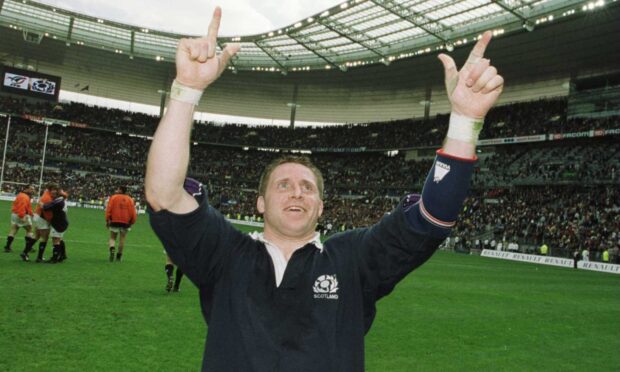Most Scottish rugby fans were left stunned by the ineptitude of their team’s Six Nations capitulation against Wales last weekend.
As Cardiff’s Millennium Stadium revelled in a party atmosphere, amid gloom for the travelling supporters, there were resigned responses from Saltire-waving aficionados.
And yet, as the Scots prepare to meet France at Murrayfield on Sunday, they should derive comfort from how quickly fortunes can be transformed in sport.
Indeed, they need look no further than their own coach, Gregor Townsend, who was involved in one of the greatest afternoons in recent rugby history when his compatriots put Les Bleus to the sword in Paris in 1999.
It was the penultimate Five Nations contest, prior to the arrival of Italy in the tournament.
And there weren’t many reasons to be cheerful for those of us at the Stade de France just before and after the kick-off in glorious sunshine.
The police band managed to massacre their rendition of “Flower of Scotland”. Then Thomas Castaignede produced a mesmerising break to score a try in the first minute of the tussle.
At that point, the visitors might have feared the worst and succumbed to their traditional rivals. After all, the Scots didn’t win in Paris between 1969 and 1995.
But instead, they surged back into the fray, seized the proceedings by the scruff of the neck and served up a thrilling exhibition of expansive, exhilarating rugby from the vintage champagne cellar.
Townsend was in the thick of it, weaving and wending his way past opponents and leaving them bewitched, bothered and bewildered.
So was Alan Tait, the former RL star with a tough-as-teak mentality, and Gary Armstrong, who skippered the side as if his life depended on it.
Remarkably, after conceding that early Castaignede try, Scotland crossed the French line no less than five times in the next 26 minutes.
With the forwards supplying a steady stream of quality possession, their exciting back line clicked into gear, and Townsend was to the fore.
As head coach, Jim Telfer, enthused: “It was as if every time we had the ball, we scored a try. For a while, it was like the other team wasn’t even on the park.”
Tait, all purpose, poise and penetration, notched two of the touchdowns, while Martin Leslie, at his ruthless best, followed suit with a brace.
There was another for Townsend and the stadium fell silent – apart from the Scottish contingent, who could scarcely believe what they were watching.
As Armstrong later recalled: “We wanted to play a wide game, the sort of game that they had used against us to such good effect the previous year.
“And it worked, it worked beautifully. We cut through them like a knife through butter.”
The Scots eventually ran out 36-22 winners, and even though there were only three points in the second half – a Kenny Logan penalty – none of us were complaining. I met Bill McLaren at the airport and he positively purred.
“That was great, son, wasn’t it,” he marvelled. And it proved the catalyst for Scotland to lift the last Five Nations trophy when Wales beat England 24 hours later.
Now, almost 20 years on, the positions of the two sides are fairly similar. Townsend has brought back a Border terrier of a scrum-half in Greig Laidlaw, who will snipe away at the French like Armstrong.
And the Scots should remember the qualities which have brought them so many victories in the last year, including notable successes against Ireland and Australia.
As the French demonstrated last weekend, they are nothing special, with little of their former powers of spontaneity or sleight of hand. On the contrary, they are ponderous and one-dimensional.
Which isn’t to say they will be a soft touch. Far from it.
However, if Townsend can remind his men of what happened in 1999, there is no reason why players in the mould of Stuart Hogg, Sean Maitland, the Gray brothers, Laidlaw and Josh Strauss can’t deliver an encore!
